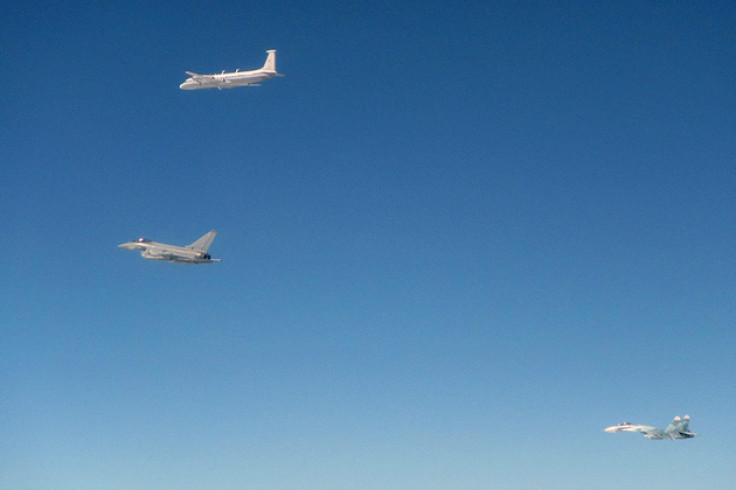RAF jets scrambled as Russian fighters approach Estonian airspace for 2nd time in a week

Typhoon jets from the Royal Air Force (RAF) have been scrambled to intercept Russian planes over the Baltic for the second time in less than a week. The jets were initially shadowing two Su-27 Flanker fighters and an IL-20 'Coot-A' Reconnaissance aircraft close to Estonian airspace, when two more Su-27s were detected. According to the Ministry of Defence (MoD) the Russian planes didn't communicate with air traffic control or transmit using established identification codes.
The incident was the second of its kind since the RAF began its annual deployment to Estonia, which is part of Nato's Baltic Air Policing mission to protect countries without a viable air force. The first incident occurred on Thursday (12 May), when the RAF intercepted three Russian military transport planes in the same area.
Defence Secretary, Michael Fallon, said: "For the second time in a week, the RAF have been on hand to respond to Russian activity at a moment's notice. 24 hours a day, seven days a week, we will continue to secure the Baltic skies on behalf of NATO and our allies."
This is the third consecutive year the RAF have deployed fighters to Estonia, along with Portuguese fighter jets based in neighbouring Lithuania. Western military experts are concerned that Russia appears to be increasingly playing a high-risk game of "cat and mouse" with Nato, which could lead to disaster if either side accidentally opened fire or there was a collision.
Both sides have accused the other of belligerency. Russian President Putin has expressed disquiet about the expansion of Nato to its borders. The US has quadrupled spending on Nato to $3.4bn (£2.3bn, €3bn) in 2017, including the establishment of the Baltic Air Policing mission.
Russia's Foreign Ministry spokeswoman Maria Zakharova was quoted by Voice of America as saying: "We do not understand what triggered those actions. We believe [Nato's actions] threaten not Russia itself but the strategic stability and security expected to prevail in Europe."
© Copyright IBTimes 2024. All rights reserved.






